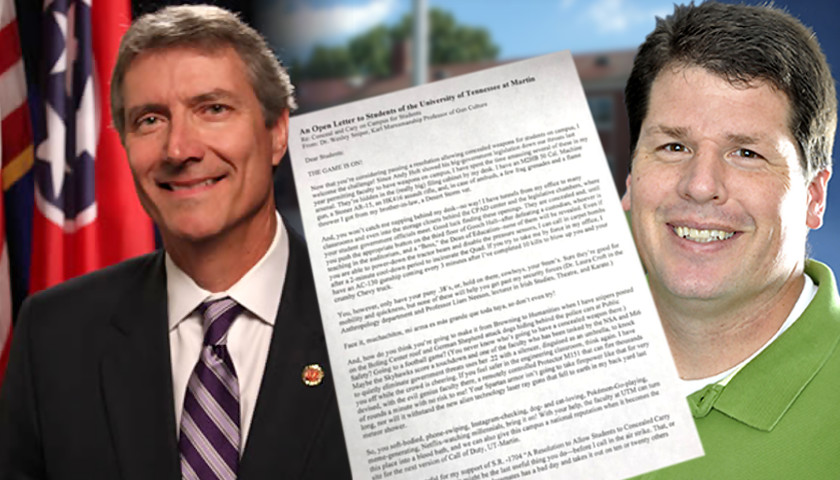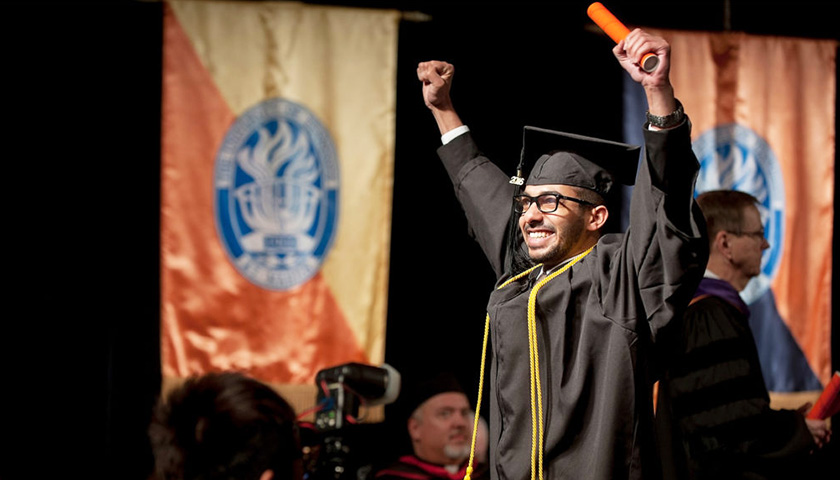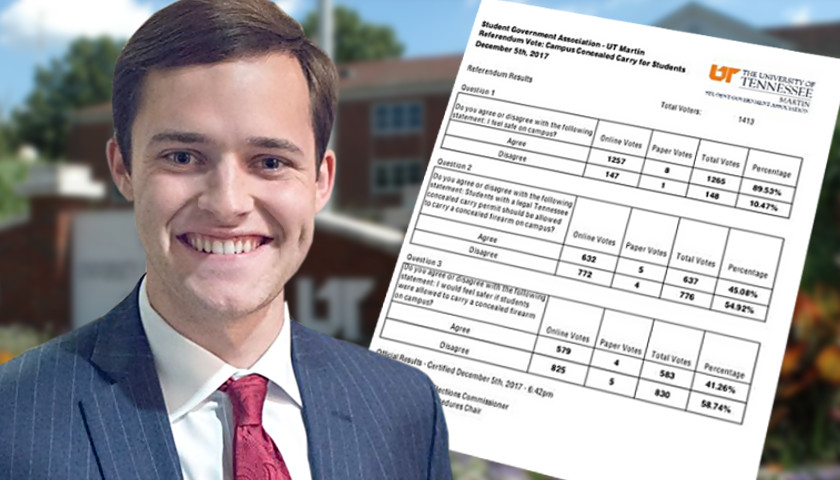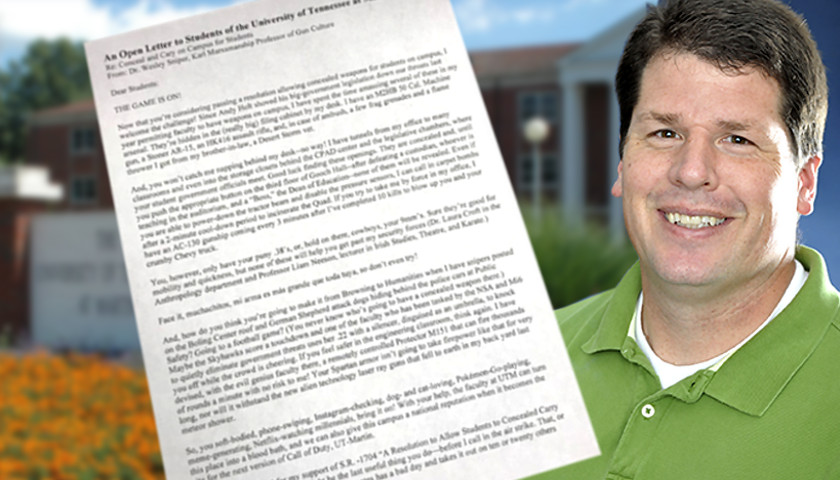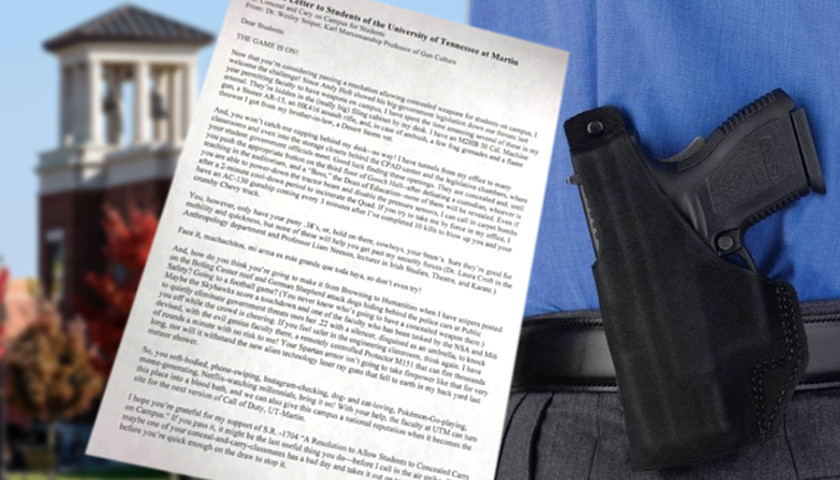In an exclusive interview with The Tennessee Star, Tommy A. Thomas, District Attorney General for Tennessee’s 27th Judicial District, explained his decision not to prosecute University of Tennessee at Martin associate professor of English Charles Bradshaw over a letter he wrote anonymously that contained threats to students promoting a resolution to allow students to concealed carry on campus.
UT Martin Chancellor Keith Carver characterized Thomas’s decision not to prosecute Bradshaw as one based on the First Amendment in a statement released on Friday.
“The campus reported the situation to the Weakley County District Attorney, who declined to press charges because Dr. Bradshaw engaged in speech protected by the First Amendment,” Carver said in the statement.
“That’s not exactly what I said,” Thomas, who serves Obion and Weakley Counties, told The Star on Monday when asked about Chancellor Carver’s statement on Friday that he had decided not to prosecute Prof. Bradshaw since the anonymous threatening letter he sent was protected speech under the First Amendment.
“We declined any prosecution because it appeared to me this was clearly not a serious threat but a parody,” Thomas said, adding:
Any punishment or anything else should be handled administratively.
I did not mention the First Amendment.
I didn’t speak to the Chancellor. I spoke to the Chief of Police of UT Martin.
While I did not mention the First Amendment, clearly the First Amendment protects free speech so that one can express oneself in a manner that is short of threatening bodily injury.
A reasonable person who would read that letter would have to find that it was a serious threat, and it was not there.
In his open statement of apology released along with Chancellor Carver’s statement on Friday, Dr. Bradshaw said “The letter was written as an example of satire to be used in a class examining different types of written argument and to prove its usefulness to current events,” adding:
I informed the class that an anonymous faculty member had written it, but it was in no way presented as embodying any political views or actual views that I or any real person held. Nor did I suggest or imply that students should hold a particular view of the “Conceal-and-Carry” situation.
I anticipated that laughter, not fear, would be its effect in my class and among my colleagues, and I shared several copies, anonymously, with selected members of my department.
District Attorney General Thomas told The Star that he spoke with the UT Martin Chief of Police and read the letter, but did not conduct a formal investigation or speak with any of the students in the class who were given the letter to read as part of a class assignment by Dr. Bradshaw.
Not everyone agrees with District Attorney General Thomas’s decision.
“If a student were to write a satirical letter as such, there would be a more extensive investigation. Moving on from this, I am hoping for a more extensive investigation of this situation than just a brief phone conversation,” Alex Joyner, a member of the Student Senate who sponsored the concealed carry resolution tells The Star.
“It may have been an in-class exercise written ‘as an example of satire,’ as Dr. Bradshaw claimed, but if it had no political intent, he would never have circulated it to his fellow faculty members,” Joyner concluded.

